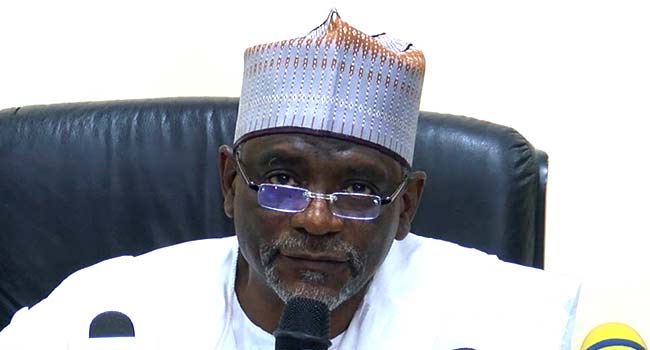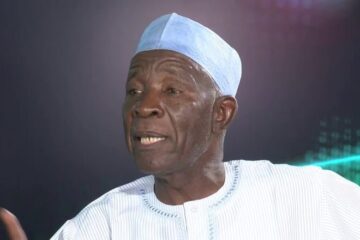‘I have failed’ – Education Minister, Adamu Adamu expresses regret with tenure

The Minister of Education, Adamu Adamu, has expressed disappointment with his tenure.
Adamu said that he regrets that after 7 years in office, he has been unable to put an end to the out-of-school children challenge in the nation.
He said that he recently realized he is the longest-serving education Minister in Nigeria and the issue has been and remains a priority to him ever since he first got into office.
Adamu said this at the 66th Meeting of the National Council on Education (NCE) which was held in Abuja on Thursday.
The Minister said that the out-of-school children problem is a direct result of the insecurity in the nation in parts as well as the weak resolve of the state governments.
“7 years ago, when I became Minister, I made it (out-of-school-children challenge) my priority and up till this moment, it is my priority.
“I recently received a phone call from one of our elders where he informed me that I am now the longest-serving Minister of Education. I didn’t know and I didn’t really care because the only thing that worried me was that I came into office with the resolve to remove out-of-school children and I have failed, so for 7 years I have been unable to do this, ” he said.
According to a Demographic Health Survey (DHS) conducted in 2015 by UNICEF and the Nigerian Government, there was 13.2 million out-of-school in Nigeria. Adamu took office as education minister in 2015.
As of 2022, UNICEF reported that the figure had risen to 18.5 million children.
The Minister explained that he had made attempts to encourage the State Governments to declare a state-of-emergency in the primary education sector as a result of the number of out-of-school children but it has still not been implemented.
“There are so many reasons why I have been unable to achieve it, Chief of which will have to do with you, Commissioners (state commissioners of Education). In 2016, I wrote the Ministerial Strategic Plan which I took to the Council and as a fallout, I requested that we should declare a State-Of-Emergency in Education, especially at the lower level.
“A decision couldn’t be taken on this because the issue of emergency in education at the level of Primary school is a State Government responsibility. So, I was directed by the President to turn that into a memo for the National Economic Council which I did with the thinking that if the council bought into it and the members are State Governors, it means it would just become a nationwide thing.
“I had to make that presentation three times and up till this moment, an emergency has not been declared. So, Commissioners, while I welcome you heartily, I must tell you that our children are still out of school because the resolve by State Governments is not as strong as that of the Federal Ministry of Education.
“I hope that after this you will take it up amongst yourselves to force your Governors to look into this, because I believe that if there is anything that is receiving the short end of the stick in Nigeria, it is primary school education”, he said.
He urged states that were lagging behind to be awake to their responsibility and work harder to ensure the safety of their students.
“While the Federal government and some states and the FCT have done their best to arrest the situation, several other states are lagging behind. Here, I would like to call on all states to rise up to their responsibilities, and provide a safe and secure learning environment for both students and teachers,” he said.
Adamu added that as the Ministry’s efforts were reducing the number of children on the streets, the states that were not playing their parts in earnest were rendering those efforts null and void by increasing those numbers.
“I have already issued part of the blame to the states for the continuous increase in the out-of-school-children, actually the reality is the measures taken by the Ministry of Education is taking millions out of the streets. Unfortunately, the things that states are not doing, are bringing so many to replace them so that the number remains constant”, he said.
The Minister also encouraged all states to implement the Accelerated Basic Education Programme (ABEP), which is an alternative basic education programme for out-of-school children and youth (10 to 18 years) in Nigeria. It was developed by the Ministry in 2015 to address the challenge of out-of-school children.
“The specific goal of the programme is to reduce the number of out-of-school children to the barest minimum among the ranks of the disadvantaged, the marginalised and those affected by crises, disasters and other socio-economic factors.
“Given that the programme is for all the states in Nigeria, I would, therefore, like to call on all states and the Federal Capital Territory (FCT) to commence the implementation of the programme in line with their circumstances and local situations,” he said.
Adamu also stated that the Ministry is working to implement a programme for the empowerment and education of Adolescent Girls with $500,000,000 in funding from the World Bank, as well as other measures it is implementing to achieve the Education 2030 Agenda.
“Other initiatives of the present administration in achieving the Education 2030 Agenda include; the implementation of Adolescent Girls’ Initiative for Learning and Empowerment (AGILE) in seven (7) pilot states with five hundred million dollars (US$ 500,000,000) funding support from the World Bank for the provision of secondary education, critical life skills and digital literacy to adolescent girls; The training of over 200 out of-school among almajirai by National Arabic Language Village.
“The development of e learning portal (www.inspire.education.gov.ng) by the ministry to cater to students in basic and senior secondary schools across the country, and the development of Nigerian Learning Passport which is a new solution designed to close the learning gaps and to enable continuous access to quality education,” he said.











